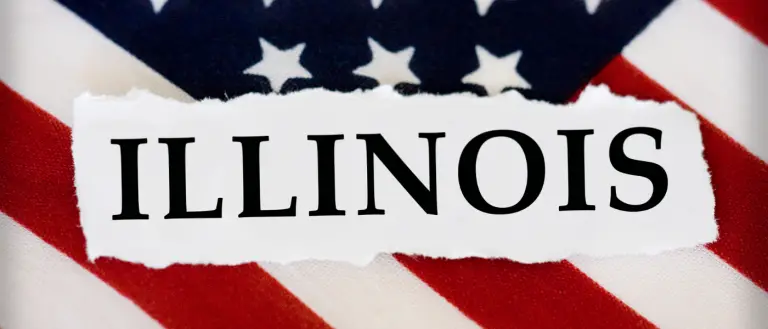Tennessee Sports Betting Legislation: Takes Key Step Forward

Officials approved Tennessee sports betting regulations Wednesday with a controversial 90% payout cap, the first of its kind in the U.S. Wednesday’s vote was a critical step that will allow mobile wagering for eligible bettors statewide, but the 90% cap will be a self-inflicted handicap for Tennessee sports betting even before it launches.
The Tennessee Education Lottery Corporation’s unanimous vote ends months of debate surrounding a series of rules not included in the original legislation. The proposals, which at one point mandated an 85% maximum payout percentage for operators and required pushes in parlay bets to count as a loss, were decried by the sports betting industry, leading to several hundred change requests.
The TELC’s Board of Directors previously struck down the “push as a loss” restrictions, and settled on a 90% maximum payout percentage, which is still behind traditional hold percentages for other U.S. betting operators, which are typically between 8% and 5%. The cap restriction will be revaluated in a year.
Though ratified after months of deliberation, the final Tennessee sports betting rules are still far from perfect in the minds of operators, many of whom remain dissatisfied with Tennessee’s 20% tax on gross gaming revenues and a $750,000 annual licenses fee, both some of the nation’s highest rates.
But Wednesday’s vote will allow an uncapped number of sportsbooks to apply in what will be the first U.S. sports betting market untethered to existing gaming facilities, a model industry stakeholders hope can be replicated in other states.
“We’ve been working to this point for a long time and it’s been quite a process,” said Board of Directors Chair Susan Lanigan. “I believe today we’re ready to adopt all the rules and regulations and process so that we’re ready to have sports wagering in Tennessee when sports resume.”
Tennessee will become the 18th state to take a legal bet. It will be the first to do so without any casinos or horse racing tracks.
Background
One of the most politically and culturally conservative states in the nation, Tennessee’s sports betting bill seemed like a longshot when introduced in November 2018. The Supreme Court struck down the federal ban prohibiting states from passing sports betting bills only six months earlier. Just eight states were taking bets at the time, all of which had far more established gaming infrastructures.
Instead, Democratic Rep. Rick Staples and Republican Sen. Steven Dickerson were able to convince colleagues in their respective chambers to support the nation’s first bill that to allow any eligible digital sportsbook to operate anywhere within state lines without having to first affiliate with a land-based gaming facility.
Though more audiations proposals such as betting kiosks were struck down, Staples, Dickerson and other backers in the General Assembly galvanized support by framing the bill as a means to take money out of the multi-billion dollar Tennessee sports betting black market and into tax revenues for government coffers. Strong pockets of opposition remained throughout the legislative process, including from Gov. Bill Lee.
But an unusual structure in Tennessee law allows only simple majority veto overrides, instead of the supermajority thresholds required in most states, all-but forcing Lee to allow the bill to pass into law without his signature.
Ratified in May 2019, sports betting was permitted under the law to begin in July of that year. But the ensuing sports betting review process would take almost a year.
Rule Making
With no other viable options, sports betting oversight fell to the Tennessee Education Lottery and staff presented a draft in November 2019. It garnered nearly 600 change requests to the 47-page draft.
At least 60 comments, the most of the more than 300 subject matters addressed in the comments, asked the TEL to remove the provisions that counted a push in a parlay leg as an automatic loss for the sports bettor. Legal sportsbooks almost always remove pushes from considerations in a parlay, and readjust payout for the winners as if the pushed event didn’t take place. That provision was moved shortly thereafter.
The second-largest opposition came on the cap. The TEL reported 37 different commenters objected to the 85% payout percentage. It would require sportsbooks to give out 15% of their winnings back to players, more than double the traditional rate of other U.S. sportsbooks, which usually average between 5-8%. A requirement in some European countries, none of the 24 jurisdictions with legal sports betting or laws to do so has any such type of mandate.
The Board of Directors previously adjusted the 85% hold to 92%, but then finalized the 90% mark at Wednesday’s meeting.
French authorities introduced the cap to curve problem gambling, and Tennessee officials cities it as a means to assure many sportsbooks could succeed in the market, not just the one with greater resources. But opponents say this hurts the inherent undulation of the market and jeopardizes its very success.
Since the payout cap means licensed Tennessee sportsbooks can’t payout more than 90% of their bets, they will have to find ways that generate more hold than a traditional sportsbook. This may seem like a boon to the bettor, but it will instead require unprecedented measures by Tennessee operators to make sure they comply with the payout cap.
That could mean skewed lines juiced in the operators favor. For example, a bet on a game with even odds would typically be priced at -110 for each side. In Tennessee, this may require sportsbooks to set lines at -125 on each side in order to assure they make up a larger profit margin.
In that scenario, sharp bettors and likely novices would turn back to their unlicensed bookmaker or offshore betting site. With many American bettors unfamiliar or ambivalent to the difference between regulated and unregulated options, the payout cap threatens the very purpose of legal wagering in the state.
The cap is only in effect for the first year of legal betting, but it could chill that theoretically limitless number of would be applicants. Ironically, it may only be the larger sportsbooks that have the resources to operate in Tennessee for the first year, giving them a major head start if, or when, the cap is adjusted or removed.
Next Steps
Sportsbook applications will be posted as early as next week. It remains to be seen how many – or when – sportsbooks begin applying, but officials will have 90 days from receipt of completed applications to apply or reject the applicant.
That leaves a realistic timeline of several additional months before betting can begin. A few leagues have announced plans to resume events beginning in May or June without spectators, at which point the first Tennessee sportsbooks may be operational.
As with nearly every facet of American life, the future of Tennessee sports betting is at the fate of the COVID-19 outbreak. So too is a first-of-its-kind market that will attempt to begin legal wagering without any traditional gambling partners and with a cap on payouts.
Ryan Butler is a legislation analyst for BettingUSA.com specializing in US sports betting legislation. Ryan breaks down the latest bills in each state to ensure our readers are up-to-date on where their states sit on sports betting. You’ll often find Ryan listening to committee hearings or preparing for the latest legislation based conference.







